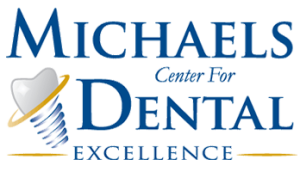Dental insurance can significantly reduce your out-of-pocket costs, but understanding how it works helps you maximize benefits and avoid surprises. Here's everything you need to know about dental insurance plans.
How Dental Insurance Works
Dental insurance typically operates on a 100-80-50 structure: 100% coverage for preventive care (cleanings, exams), 80% for basic procedures (fillings), and 50% for major work (crowns, root canals). You pay a monthly premium and may have a deductible ($50-$100) before coverage begins. Most plans have an annual maximum ($1,000-$2,000) they'll pay per year.
Types of Dental Insurance Plans
PPO (Preferred Provider Organization) plans offer the most flexibility - you can see any dentist but pay less with in-network providers. HMO (Health Maintenance Organization) plans cost less but require choosing a primary dentist from the network. Indemnity plans let you see any dentist but are increasingly rare and expensive.
What's Typically Covered
Most dental insurance plans cover:
- Preventive: Cleanings, exams, X-rays (usually 100%)
- Basic: Fillings, simple extractions (usually 80%)
- Major: Crowns, root canals, bridges (usually 50%)
- Emergency: Pain relief, emergency exams
What's Usually Not Covered
Cosmetic procedures like teeth whitening and veneers are rarely covered unless medically necessary. Orthodontics (braces, Invisalign) may have separate coverage with lower lifetime maximums. Implants are increasingly covered but often at lower percentages or with restrictions.
Waiting Periods
Many plans impose waiting periods before certain services are covered: typically no wait for preventive care, 6 months for basic procedures, and 12 months for major work. If you need immediate treatment, consider plans without waiting periods or dental savings plans instead.
Maximizing Your Benefits
Get the most from your dental insurance:
- Use your preventive benefits - they're usually fully covered
- Schedule major work before year-end to use your annual maximum
- Understand your plan's fee schedule and coverage percentages
- Stay in-network when possible for lower costs
- Don't let benefits expire - use them or lose them annually
- Get pre-authorization for expensive procedures to avoid surprises
Is Dental Insurance Worth It?
If your employer offers dental insurance, it's almost always worth the premium - you'll likely break even with just two cleanings per year. Individual plans require more analysis: calculate the annual premium plus deductible versus your expected dental costs. For people needing major work, insurance usually pays for itself.
Alternatives to Traditional Insurance
Dental savings plans offer discounts (10-60% off) for an annual fee without deductibles, maximums, or waiting periods. Some practices offer in-house membership plans with similar benefits. These alternatives work well for people without employer-sponsored insurance.
Understanding your dental insurance helps you make informed decisions and maximize benefits. Review your plan details, ask your dentist's office for help navigating coverage, and use your benefits strategically.
Why Choose Michael's Dental?
Expert Care
Board-certified dentists with 20+ years experience
Modern Technology
State-of-the-art equipment and techniques
Flexible Financing
Payment plans available for all budgets
Same-Day Appointments
Emergency care available when you need it

